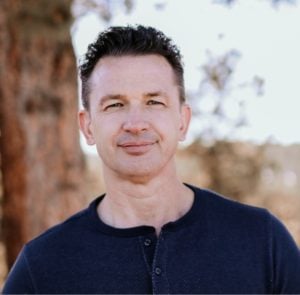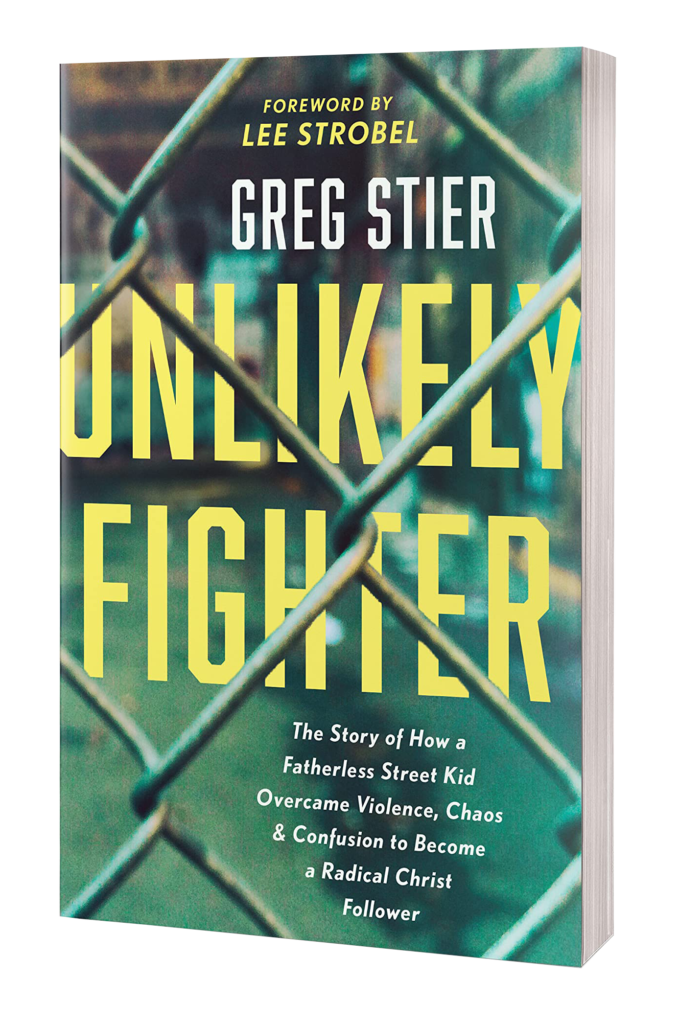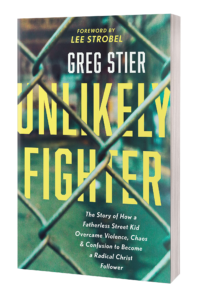We’ve all experienced various forms of trauma over the course of our lives. For some is has been verbal abuse, words, like a poison-dipped arrow, aimed at the core of your soul. For others it has been physical or even sexual abuse. But all of us have been victims of some sort of trauma in some way.
For many, this trauma happened when they were young and they carry the open scars of this pain far into their adult years. Some are not able to function wholly because it continues to dominate their thoughts, consciously or subconsciously.
How can these traumas be put to rest once and for all, or can they? How can we live what some have nicknamed “the overcoming life” that the Scriptures promise in 1 John 4:5, “…for everyone born of God overcomes the world. This is the victory that has overcome the world, even our faith.”
Before I share the “keys” to overcoming a life of trauma, I need to admit something to you. The last 24 months have been like therapy for me…trauma therapy. When Tyndale Momentum accepted my book proposal to write my memoir, Unlikely Fighter: The Story of How a Fatherless Street Kid Overcame Violence, Chaos and Confusion to Become a Radical Christ Follower, I had no idea how hard the process would be.
The writing process unleashed a flood of emotions triggered by a tsunami of memories. Once the tide receded, I saw the immense amounts of trauma that had washed up on the shore of my soul.
I often use the stories from my past as sermon illustrations. Some are funny. Some are violent. But all are true. When preparing my sermon, I mentally run back to my upbringing and gather three minutes of a sermon illustration here or 4 minutes there. I use just enough of whatever story I’m recounting to make my point. Then I preach the Word.
But writing a memoir is not taking short memory jaunts to your past. It involves getting in a time machine and inviting the reader to go back with you to feel what you felt and see what you saw.
This process conjured up a ton of ugly crying (the only kind I do) when I was locked away in a cabin in the Rocky Mountains pounding away at the keys, trying to finish my book. It unlocked a ton of the trauma that I experienced as a kid.
Like a therapist that takes you back to those painful memories, the writing process did that for me. And, let me tell you this, The Holy Spirit is called “The Counselor” for a reason. He counseled me through the entire process.
When I finally finished Unlikely Fighter, I deeply understood that God had rescued (and is rescuing) me from the consequences of being raised in a violent and dangerous home.
So, with this as a backdrop, and 56 years of trauma and transformation under my belt, here’s what I would say about how to overcome trauma from your past:
- Relentlessly look to Jesus and His Word for deep transformation.
Jesus said, “Come to me, all you who are weary and burdened, and I will give you rest. Take my yoke upon you and learn from me, for I am gentle and humble in heart, and you will find rest for your souls. For my yoke is easy and my burden is light.” Matthew 11:28-30
I remember as a kid, hiding underneath the kitchen sink to get away from the yelling and violence of my family. Under the sink was my safe space. I had nothing but a flashlight and my little red King James Bible that Mrs. Muirhead, my Sunday School teacher, had given me. I didn’t understand the words fully, but I knew the answers were in that book, so I scoured the pages to find them.
To this day I search the Scriptures (now it’s a NIV 1984 Study Bible thank you very much.) Today, my safe space is my living room at the end of my couch by our gas fireplace. Instead of a flashlight I have a cup of coffee. When I’m not on the road, I meet Jesus there every morning at 5 am. When I am on the road, my routine continues, usually at the same time, in my hotel room.
I’m still relentlessly looking to Jesus for the answers, for the healing, for the hope. And he gives me the daily bread that I need. He gives me enough to sustain me, to encourage me, to prepare me for the mission he has me on that day.
He wants to do the same for you.
2. Realize that it’s a jagged, not a straight line, to healing.
“We know that the law is spiritual; but I am unspiritual, sold as a slave to sin. I do not understand what I do. For what I want to do I do not do, but what I hate I do. And if I do what I do not want to do, I agree that the law is good. As it is, it is no longer I myself who do it, but it is sin living in me. For I know that good itself does not dwell in me, that is, in my sinful nature. For I have the desire to do what is good, but I cannot carry it out. For I do not do the good I want to do, but the evil I do not want to do—this I keep on doing. Now if I do what I do not want to do, it is no longer I who do it, but it is sin living in me that does it. So I find this law at work: Although I want to do good, evil is right there with me. For in my inner being I delight in God’s law; but I see another law at work in me, waging war against the law of my mind and making me a prisoner of the law of sin at work within me. What a wretched man I am! Who will rescue me from this body that is subject to death? Thanks be to God, who delivers me through Jesus Christ our Lord! So then, I myself in my mind am a slave to God’s law, but in my sinful nature a slave to the law of sin.” Romans 7:14-25
Even the great Apostle Paul struggled. His ongoing battle with sin in Romans 7 gives every Christian hope. As someone once said, “The Christian life is three steps forward, two steps back.” It’s an ongoing quest of “failing forward” to Christlikeness. It’s a jagged line to healing and sanctification.
Never give up. Fight the good fight. Finish the course. Keep the faith.
3. Remember that God gives you community, counselors and confession for a reason.
“And the prayer offered in faith will make the sick person well; the Lord will raise them up. If they have sinned, they will be forgiven. Therefore confess your sins to each other and pray for each other so that you may be healed. The prayer of a righteous person is powerful and effective.” James 5:15,16
As someone once said, “We confess our sins to God for forgiveness. We confess to each other for healing.” I thank God for those mentors and friends He has put in my life over the last decades to whom I can confess my sins and struggles to on a consistent basis. This doesn’t mean that we confess all our sins to everyone (that would be dangerous.) But it does mean that we confess all our sins to someone. Of course, this “someone” should be a strong believer whom we trust with our struggles and who can speak into our lives.
In addition to these mentors and friends, God has blessed every believer with the opportunity of community within the body of Christ “for the building up of the body” Ephesians 4:16. We should be part of a community where we can receive ongoing encouragement and use our spiritual gifts to serve and build up others.
Finally, there are those who are specially gifted as counselors. I’m one of those Christian leaders who believe in Christ-centered, Biblically based counseling that dives deep into trauma and struggles, gets to the root of them and provides solutions that are solidly Biblical and helpful. Writing my memoir felt like a ten year counseling session compressed into a 24 month period and has been immensely helpful to me.
4. Redeem your pain for a purpose.
“Praise be to the God and Father of our Lord Jesus Christ, the Father of compassion and the God of all comfort, who comforts us in all our troubles, so that we can comfort those in any trouble with the comfort we ourselves receive from God. For just as we share abundantly in the sufferings of Christ, so also our comfort abounds through Christ.” 2 Corinthians 1:3-5
The Greek word for “comfort” here means to “stand beside someone and strengthen them when they are under immense pressure.” Because I come from a family of bodybuilders (but am not one myself), I can’t help but think of a gym term called “spotting.”
When someone is bench pressing a large weight, a weight that they themselves are not sure they can push back up from their chest, they ask someone to spot them. The “spotter” stand over them as they lie down on the bench and press the weight up from the bench press rack. The spotter puts both hands under the bar as the weightlifter brings it down to his/her chest and seeks to push it back up. All the while, the spotter is encouraging the weightlifter that they can do it. They say things like, “Push! You can do this! You got this!” And, if the weight is too much, they apply just enough pressure with their hands to get the weighted bar all the way up.
We are called to be spotters for others as they press the weight of trials that they are currently under. We are to encourage them and help them through…just like others have helped us…just like the Holy Spirit, the ultimate spotter, helps us.
One of the reasons I’m able to preach to teenagers all across the United States today and still relate is not because I’m a cool guy. I’m not. It’s because the pain and trauma of my upbringing is a portal of pain through which God delivers his grace to a young audience that relates to my pain. I’m able to spot them, by God’s grace, through their times of trouble and point them to Jesus.
But this message is not just for teens. It’s for everyone.
I encourage you to pick up my book, Unlikely Fighter. I think it will strengthen you in your own journey and show you how to overcome trauma from your past through the power of the cross and the empty tomb.






